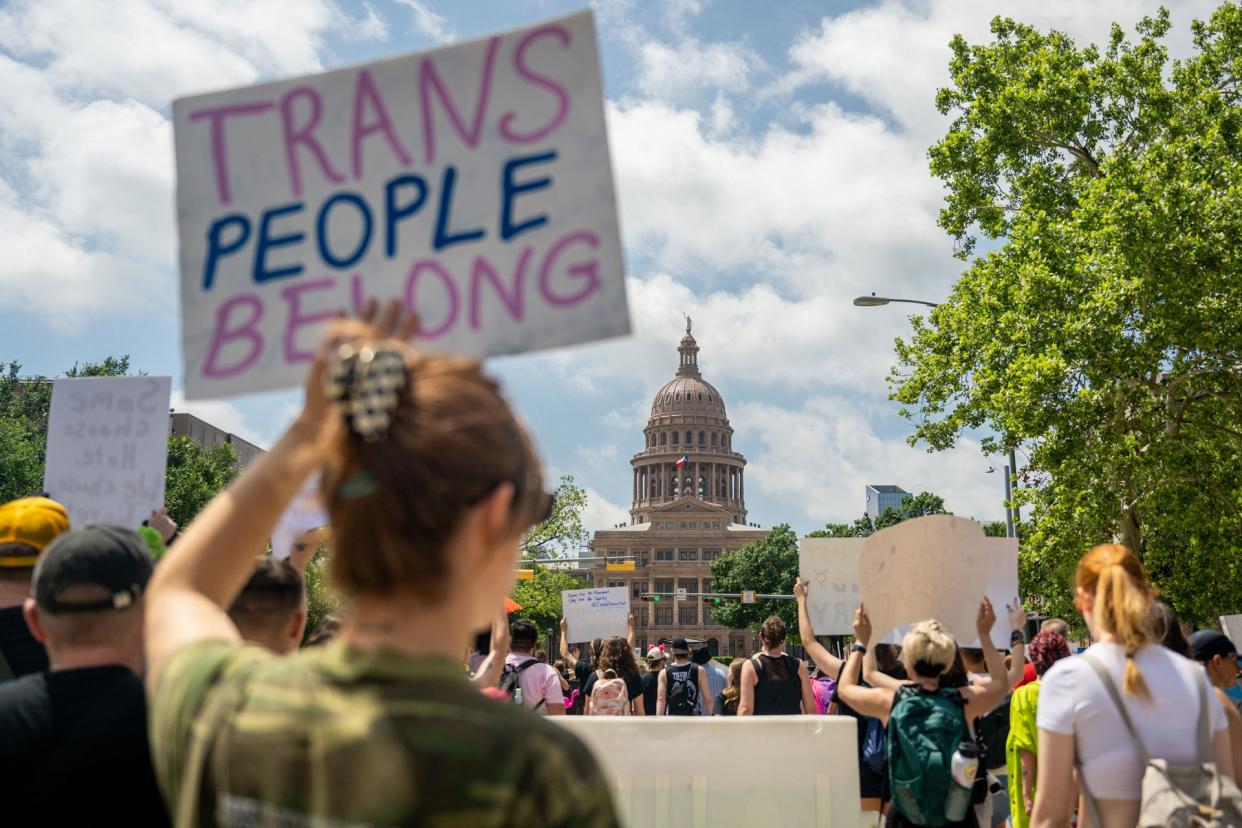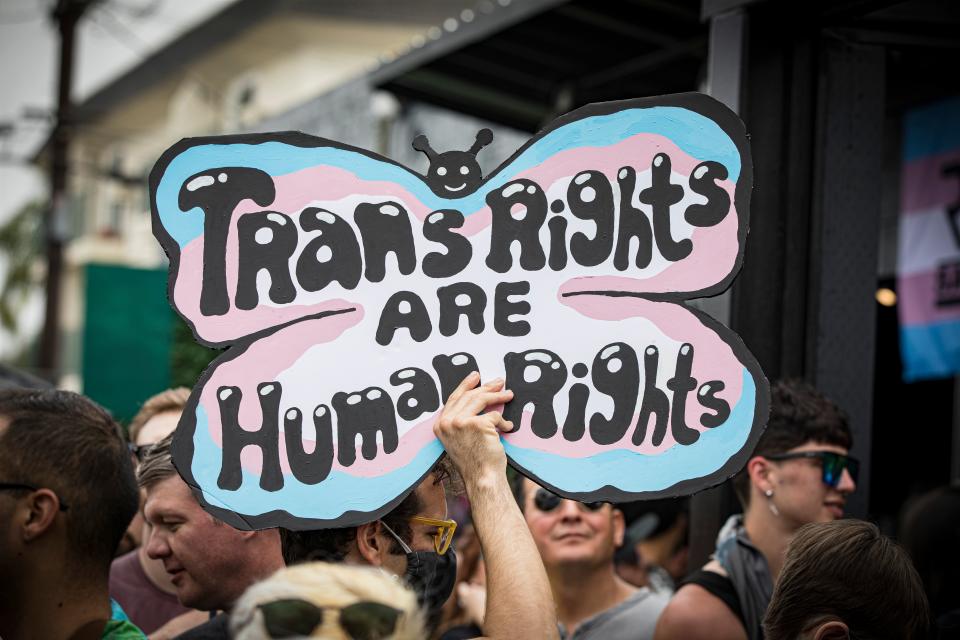Texas' All-Republican Supreme Court Upholds Ban on Gender-Affirming Care for Youth

- Oops!Something went wrong.Please try again later.
- Oops!Something went wrong.Please try again later.
Brandon Bell/Getty Images
The Texas Supreme Court ruled in favor of the state’s ban on gender-affirming care for minors on Friday, blocking access to puberty blockers and hormones for transgender youth.
Governor Greg Abbott signed the ban into law last September, forcing healthcare providers to “wean” trans youth off of their medications. The ban also prohibited gender-affirming surgeries for trans youth; a study published Thursday found that such surgeries are vanishingly rare among trans youth, but are more commonly performed to affirm cisgender teens’ gender expression.
In August, a district court blocked the care ban, finding that it “interferes with Texas families’ private decisions” regarding their children’s medical care. But the all-Republican Texas Supreme Court agreed to hear an appeal from the state in January, and this week ruled in favor of the ban in an 8-1 decision.
Writing for the majority, Justice Rebeca Aizpuru Huddle called the ban a “permissible, rational policy choice” by lawmakers due to the “relative nascency of both gender dysphoria and its various modes of treatment.” In fact, hormone therapies have been used to treat gender dysphoria since the 1960s, and puberty blockers have been prescribed to young people, mostly cis children experiencing early puberty, for more than 40 years. Still, Huddle ruled that that government’s “interest in protecting children from harm” allowed the legislature to pass such a ban, and that the plaintiffs — medical professionals and parents and guardians of trans youth living in Texas — did not demonstrate that their constitutional rights had been violated, overturning the district court’s injunction.
In her lone dissenting opinion, Justice Debra Lehrmann wrote that the gender-affirming care ban “is not only cruel — it is unconstitutional.” Lehrmann criticized the majority for drawing a false comparison between medical care and getting a tattoo, writing that her fellow justices used non-medical precedent to settle a matter of medical rights. She also called out the court’s “one-sided concern” regarding the effects of gender-affirming care (which Huddle termed “permanent adjustment[s] to the human body”), pointing out that “categorically denying children medical treatment for their gender dysphoria can be equally irreversible.”
“The State’s categorical statutory prohibition prevents these parents, and many others, from developing individualized treatment plans for their children in consultation with their physicians,” Lehrmann wrote, “even the children for whom treatment could be lifesaving.”
Texas’ care ban is now cleared to take effect, part of state Republicans’ ongoing fight against LGBTQ+ rights. Abbott has spearheaded the charge, directing state officials to investigate the families of trans youth for alleged “child abuse” beginning in 2022; earlier this year, Abbott declared his wish to “end” trans people’s ability to teach in Texas schools. Last month, the Texas Supreme Court also ruled against a group of women who said the state’s abortion ban put them at risk.
In 2024 alone, U.S. legislatures have considered 155 bills banning or restricting gender-affirming care, according to an independent analysis by Trans Legislation Tracker. The U.S. Supreme Court will soon hear arguments on whether such care bans are unconstitutional, but a ruling in that case is not expected until fall 2025.
Representatives for the ACLU of Texas, Lambda Legal, PFLAG, GLMA, and the Transgender Law Center denounced the ruling in a joint statement Friday morning. “Instead of leaving medical decisions concerning minor children where they belong, with their parents and their doctors, the Court here has elected to let politicians — in blatant disregard for the overwhelming medical consensus — determine the allowed course of treatment, threatening the health and the very lives of Texas transgender youth,” wrote Karen Loewy, senior counsel and director of constitutional law practice at Lambda Legal.
U.S. District Judge Robert Hinkle’s order on Tuesday admonished Florida for trying to regulate gender-affirming care based on “anti-transgender animus.”
Despite a major setback in today’s ruling, the coalition vowed to fight vigorously against future anti-trans bills and policies. “Today, the trans community was abandoned by the very institutions designed to protect them, and health professionals were denied their ability to perform their duties based on the best scientific evidence available, free from political interference,” said GLMA executive director Alex Sheldon. “This fight is far from over. We will continue to challenge unjust measures like SB 14 and to defend the rights of all trans youth to access the essential care they need and deserve.”
Get the best of what’s queer. Sign up for Them’s weekly newsletter here.
Originally Appeared on them.
More Stories from Them on Anti-Trans Legislation
For LGBTQ+ Rights, 2023 Was a Year of Fighting. Here’s What We Won
5 Trans Students Explain How They’re Coping With Harassment, Protests, and More at School
2022 Was the Worst Year Ever for Anti-Trans Bills. How Did We Get Here?
Trans Adults Are the Next Target in the GOP’s War on Gender-Affirming Health Care
7 Trans Students on the Fear, Humiliation, and Loneliness of Life Under Bathroom Bans
The Florida House Passed Three Extreme Anti-Trans Bills in a Single Day


